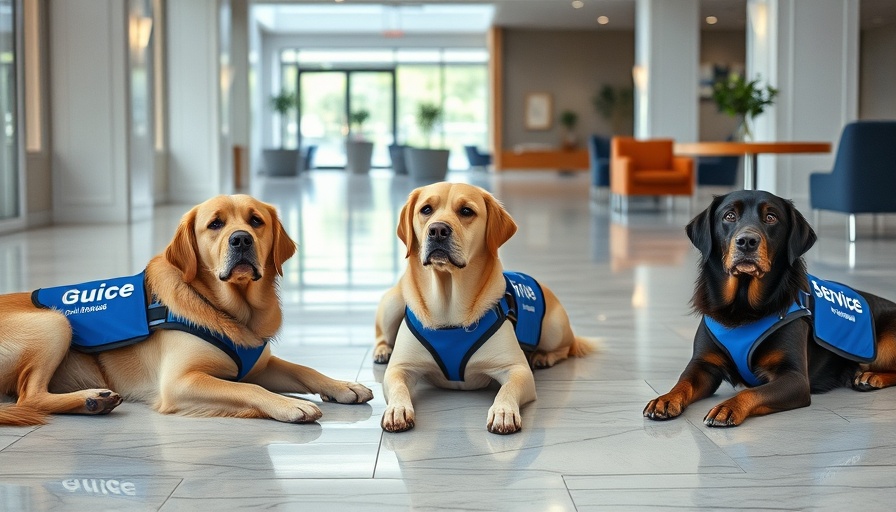
How Dogs and Handlers Prepare for Emergencies
Emergencies can strike unexpectedly, creating challenges that require both training and preparation for service dog handlers. At BC & Alberta Guide Dogs, we empower our clients to navigate these situations confidently. With extensive training, handlers learn how their service dogs can support them in various emergencies, ensuring both their safety and that of their canine companions.
The Crucial Role of Service Dogs in Emergencies
Service dogs are more than just companions; they play pivotal roles during emergencies. Whether it’s responding to a sudden health crisis like a seizure or managing a mobility challenge, these dogs remain steadfast by their handlers' sides. Research indicates that the presence of a service dog can significantly reduce anxiety and provide emotional support during stressful situations.
For example, if a handler suffers a fall or medical emergency, the service dog is trained to stay close, providing stability until help arrives. Their identifying jackets allow bystanders to recognize their role as working animals, encouraging them to aid in alerting emergency contacts. This unique partnership showcases the powerful bond between handler and service dog, emphasizing the importance of comprehensive training in emergency preparedness.
Types of Emergencies Handled
Emergencies can vary widely in nature. From natural disasters to personal health crises, service dogs must be prepared for any situation. They're trained to execute specific tasks under stress, such as alerting staff, guiding their handlers to safety, or even locating medical assistance. This proactive approach ensures that handlers are not only prepared for their specific needs but also that they can rely on their dogs to respond appropriately when it matters most.
Proactive Training and Health Management
A cornerstone of emergency preparedness is ongoing training. At BC & Alberta Guide Dogs, handlers learn about their dogs' health management, including regular vet checks and monitoring for any signs of illness. This focus on health ensures that the service dog remains fit and capable of performing their duties in emergencies.
Handlers are also educated about the critical need for up-to-date medical records and emergency contact information. This approach is echoed in Cooperative Paws, which emphasizes maintaining a preparedness plan that includes caregivers for both the handler and the service dog during unforeseen circumstances.
Real-Life Applications and Success Stories
Numerous service dogs have proven their worth during times of crisis, providing essential support and relief during traumatic events. Their training extends beyond basic obedience to include specialized skills that vary depending on the type of service they provide. This adaptability is evident in instances during natural disasters, where dogs have assisted in rescue operations, or in everyday emergencies where they help their handlers navigate medical incidents. For instance, during the 9/11 attacks, search and rescue dogs played a significant role, showcasing how crucial their training can be in dire situations.
Details that Matter: Tools for Success
Handlers are encouraged to equip themselves and their service dogs with essential tools such as identification tags and emergency kits. This preparedness not only helps during emergencies but also fosters a sense of control and readiness. Maintaining open communication with local emergency services can also contribute to a smoother response during a crisis. Personalized plans can be established that outline the specific needs of the handler and their service animal, which can help first responders act more effectively in emergencies.
Conclusion: The Importance of Being Prepared
While emergencies are indeed unexpected, advanced preparation can significantly ease the burden on handlers and their service dogs. Through organizations like BC & Alberta Guide Dogs, individuals are equipped not only with skills but with confidence to face any situation. Training, ongoing health management, and the knowledge of resources can empower service dog handlers to handle emergencies with poise.
For those in the service dog community, understanding the scope of emergency readiness is essential. We encourage service dog handlers to engage in thorough training and consider all potential emergency scenarios they might encounter. By being well-prepared, you can ensure your and your dog's safety whenever the unexpected arises.
 Add Row
Add Row  Add
Add 




 Add Row
Add Row  Add
Add 

Write A Comment